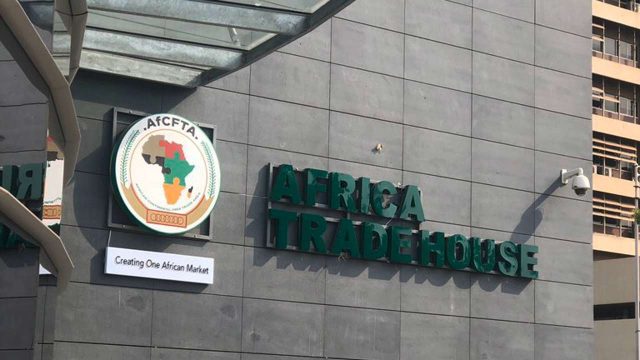Despite being Africa’s largest economy, Nigeria faces significant challenges in fully leveraging the opportunities presented by the African Continental Free Trade Area (AfCFTA). Experts attribute the country’s struggles to poor infrastructure, which hampers its ability to compete effectively within the free trade bloc.
AfCFTA: A Strategic Opportunity
The AfCFTA, launched in January 2021, is designed to foster economic integration by eliminating trade barriers among African nations. It aims to create a single market for goods and services, enhancing intra-African trade and economic growth. With its large population and diverse economy, Nigeria is positioned to play a leading role in this initiative.

Key Infrastructure Challenges
- Poor Transportation Networks:
Nigeria’s road, rail, and port systems are in dire need of upgrades. Congested ports, dilapidated roads, and an underdeveloped rail system significantly increase the cost of moving goods domestically and internationally. - Unreliable Power Supply:
Frequent power outages force businesses to rely on expensive generators, raising production costs and reducing competitiveness. - Inefficient Logistics and Customs Systems:
Lengthy customs processes and poor logistics management slow down trade and discourage exporters. - Digital Infrastructure Gaps:
Limited access to reliable internet and digital payment systems constrains Nigeria’s participation in e-commerce, a critical component of modern trade.
Economic Implications
The infrastructure deficits have limited Nigeria’s ability to maximize its share of the AfCFTA’s benefits, including expanded markets and enhanced foreign investment. According to trade economist Dr. Ifeoma Eze, “Without adequate infrastructure, Nigerian businesses cannot effectively compete with their counterparts from countries with more efficient systems, even within the same trade bloc.”
Stakeholder Concerns
Manufacturers, exporters, and small business owners have expressed concerns about their ability to meet regional demands under the AfCFTA. “It’s difficult to expand trade when moving goods within the country is more expensive than exporting to other continents,” said Emeka Nwosu, a Lagos-based exporter.
Recommendations for Improvement
To address these challenges and unlock the benefits of the AfCFTA, analysts recommend:
- Infrastructure Investment:
The government should prioritize funding for roads, railways, and ports, with a focus on projects that directly support trade. - Public-Private Partnerships (PPPs):
Encouraging private sector investment in infrastructure development could bridge funding gaps and accelerate progress. - Streamlining Customs Processes:
Simplifying and digitizing customs procedures can reduce delays and improve trade efficiency. - Power Sector Reforms:
Investments in renewable energy and grid expansion can address the power supply issues affecting businesses. - Digital Transformation:
Expanding broadband coverage and adopting digital trade solutions will enable Nigerian businesses to participate in the digital economy.
A Long Road Ahead
While the Federal Government has launched several initiatives to improve infrastructure, including the Presidential Infrastructure Development Fund (PIDF) and projects under the National Integrated Infrastructure Master Plan (NIIMP), progress has been slow. Experts warn that without swift and sustained action, Nigeria risks falling behind smaller, more agile economies in the AfCFTA framework.
Conclusion
Nigeria’s participation in the AfCFTA holds immense potential for economic growth, but poor infrastructure remains a significant roadblock. To compete effectively in the continental market, the government must address these deficiencies and create a more conducive environment for trade. With strategic investments and reforms, Nigeria can position itself as a leader in Africa’s economic integration.
Support InfoStride News' Credible Journalism: Only credible journalism can guarantee a fair, accountable and transparent society, including democracy and government. It involves a lot of efforts and money. We need your support. Click here to Donate
